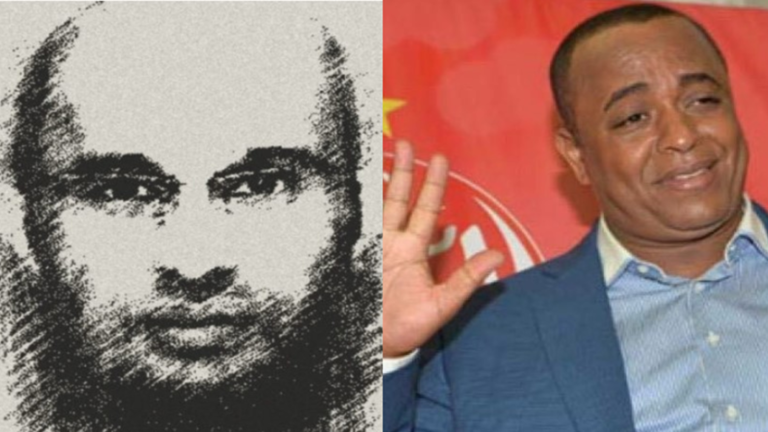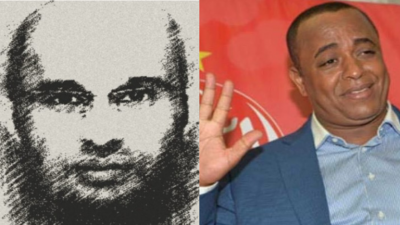Moroccan public opinion is currently focused on the case of "Desert Escobar," which has implicated prominent figures facing serious charges such as the appropriation of properties belonging to the drug dealer "Malai" who is currently imprisoned. This case erupted last Friday when Moroccan authorities issued a decision to detain Said Nasri, the president of Wydad Casablanca, one of Morocco's largest football clubs and in Africa, for investigations related to several charges including "drug trafficking" and "money laundering." The investigation involves 25 suspects, 21 of whom are currently in custody, including Abdel Nabi Bouih, president of the Eastern Region, and other prominent officials. Nasri and Bouih are leaders in the Authenticity and Modernity Party, which is part of the Moroccan governing coalition, according to a report by "Russia Today." Nasri is set to appear before the investigating judge for detailed questioning on January 25th. This case was opened based on accusations made by an inmate involved in an international drug trafficking case against Nasri, as reported by Moroccan media.
The case is linked to a "drug lord" nicknamed "Desert Escobar," also referred to as "Malai" due to his origins in Mali. He was arrested in Morocco in 2019 and sentenced to ten years in prison for "international drug trafficking," as revealed by "Jeune Afrique" magazine last August.
Who is "Desert Escobar"?
"Desert Escobar" is a major drug dealer named Hajj Ahmed bin Ibrahim, born in 1976 in Kidal, Mali, to a Moroccan mother and a Malian father. "Jeune Afrique" states that he is a drug dealer from Mali who brought down prominent Moroccan figures in sports and politics, leading them to prison on Friday night in a heavy case that began 13 years ago, later stirred by the drug lord himself after spending four years contemplating in his cell in El Jadida, where he is serving his sentence since 2019.
The magazine adds that Hajj Ahmed bin Ibrahim’s life was "simple like any son of a camel herder," but a chance encounter with participants in the Paris-Dakar rally helped him deepen his knowledge of the desert, mastering the dialects of Azawad and familiarizing himself with tribes and details of the African coast, thereby acquiring attributes rarely found in one person, allowing him to control vast areas of the region.
The source indicated that "Desert Escobar" quickly transitioned to a second level of operation by exploiting his desert knowledge in drug trafficking, initially using small planes to transport cocaine from Latin America to West Africa, Côte d'Ivoire, Senegal, Guinea-Bissau, and Sierra Leone. He also managed to transport large quantities of these drugs, either by land through Mali, Niger, Algeria, Libya, and Egypt, or by sea via Moroccan coasts to Europe, becoming one of the largest drug traffickers on the continent.
The magazine reports that international drug trafficking opened "Desert Escobar's" eyes to the world, allowing him to live a life of luxury. He married the daughter of a high-ranking Bolivian military officer, forged relationships with women in all the countries he operated in, and is said to have a son in every country. He expanded his assets by purchasing a private island in Guinea, apartments in Brazil, and land in Bolivia. According to "Jeune Afrique," the expansion of property led "Desert Escobar" to Morocco in 2010, where he bought a luxury villa in Casablanca and apartments in Saidia.
The case of "Desert Escobar" remained dormant following the arrest of the "Malai" in 2019 by Moroccan authorities at Mohammed V Airport, leading him to trial and imprisonment in El Jadida, until he contemplated revenge on his partners after accusing them of scheming against him and seizing his properties while he was incarcerated. "Desert Escobar" decided to file complaints against a list of names including public figures in the country, foremost among them Abdel Nabi Bouih, president of the eastern region of Morocco and one of the prominent leaders of the Authenticity and Modernity Party, and Said Nasri, president of Wydad and a notable leader in the party.
"Jeune Afrique" revealed that the Moroccan politicians implicated in the case collaborated with "Desert Escobar" since 2010 to transport tons of drugs from the coasts of the Moroccan city of Saidia to other countries across the continent. The magazine clarified that the police registered over 500 reports, all corroborating the claims made by the "Malai," based on numerous testimonies and material evidence. Among the key witnesses is the former wife of Abdel Nabi Bouih, who voluntarily came forward to testify against her ex-husband.
The newspaper pointed out that "Desert Escobar" had previously been sentenced to four years in prison in Mauritania. After leaving prison, he returned to Morocco to reclaim his place in the drug market, but he did not anticipate falling once again into a trap set by his partners.




